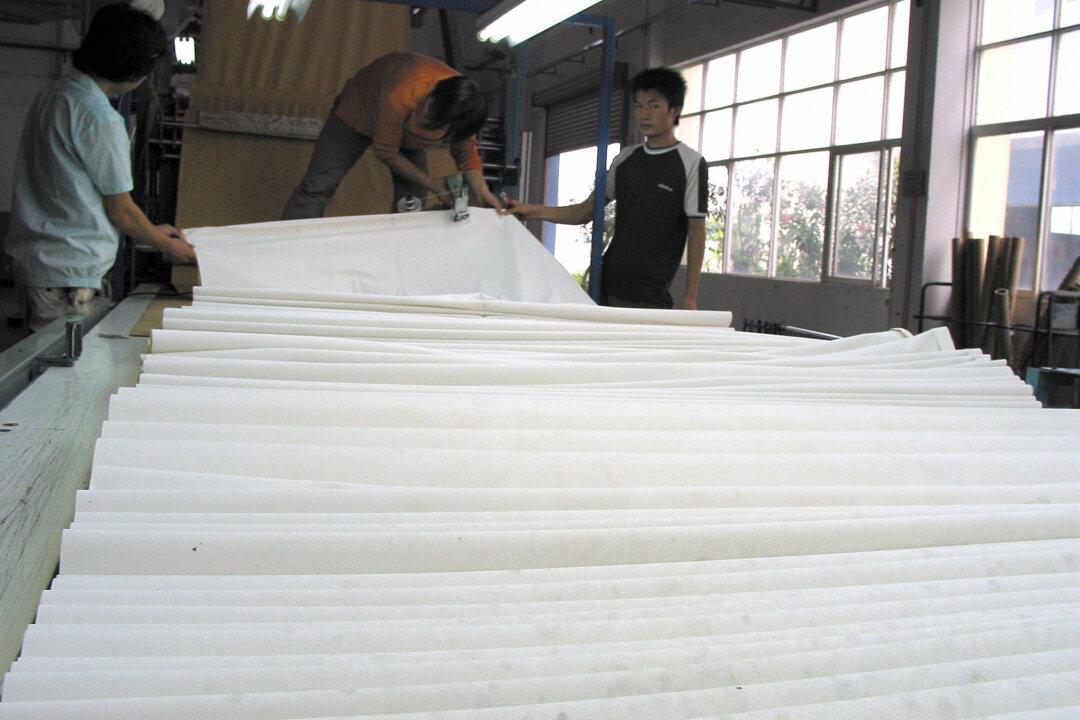Paper prices have taken a sharp rise in China recently, with some companies upping prices five times in a month. The soaring price has become a most searched topic on China’s Internet.
Major printing paper companies and traders issued a number of notices of price adjustments in May after the price of printing paper increased by approximately $31.34 per ton. The increase for white cardboard was even higher.





